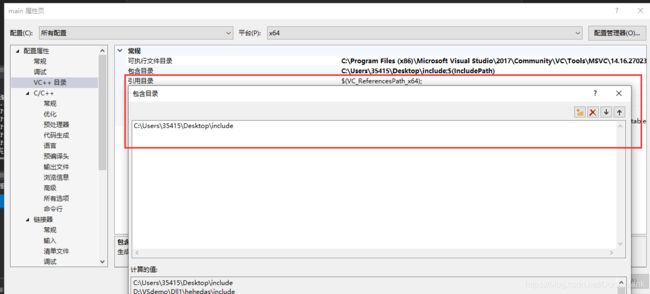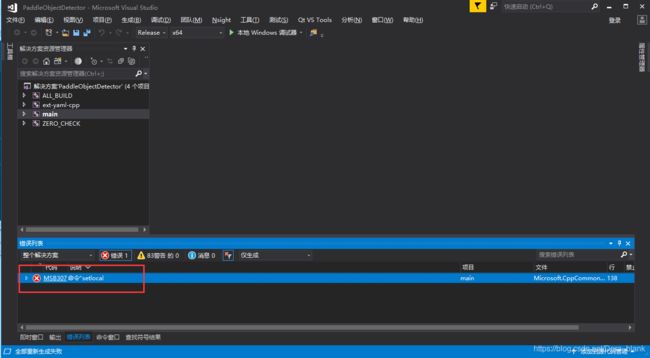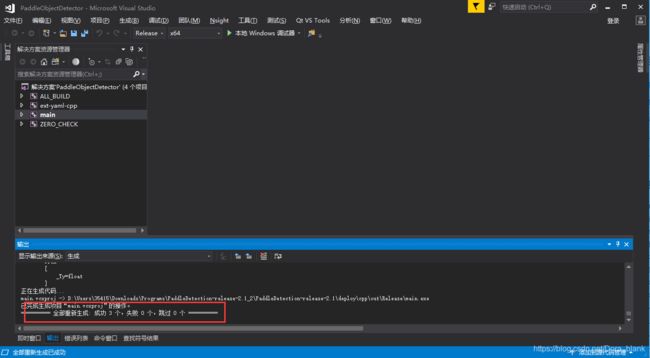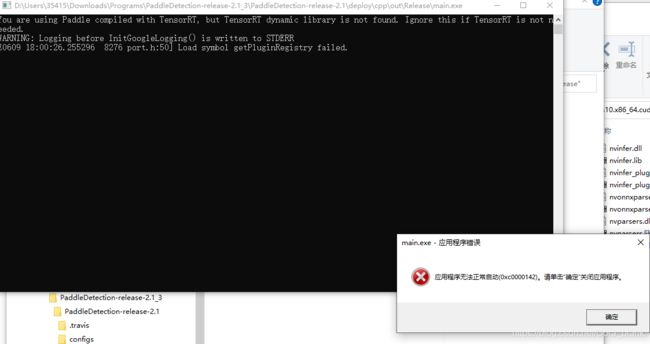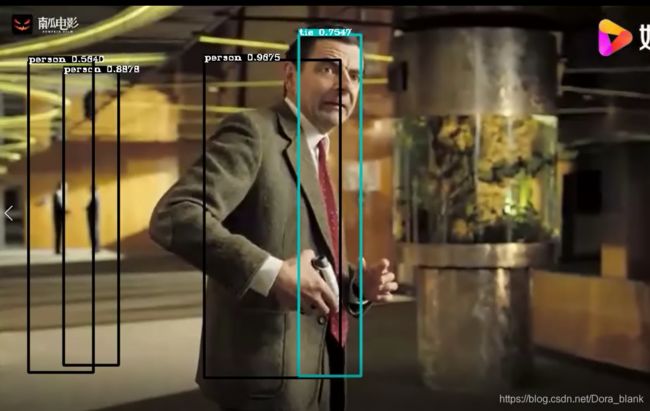PaddleDetection部署c++测试图片视频 (win10+vs2017)
文章目录
- 前言
- 1、必要环境
- 2、安装
-
- 2.1 安装依赖库
- 2.2 配置opencv环境
- 2.3 下载PaddleDetection源码
- 3、编译+生成
- 4 、解决vs生成报错
-
- 4.1 错误:C1083 无法打开包括文件:"dirent.h":No such file or directory
- 4.2 报错C3861“lstat”: 找不到标识符
- 4.3 报错 MSB3073 命令“setlocal
- 5、测试
-
- 5.1 报错找不到paddle_inference.dll
- 5.2 报错 Load symbol ...程序无法正常启动
- 5.3测试图片
- 5.4测试视频
-
- 5.4.1 报错OpenCV: FFMPEG: tag 0x00000021/'!???' is not found...create video writer failed!
- 总结
前言
PaddleDetection部署c++测试图片和视频,此文详细讲解了可能遇到的一切报错
1、必要环境
本文使用cuda10.1+cudnn7.6.5+vs2017+cmake3.17.0
2、安装
2.1 安装依赖库
2.2 配置opencv环境
2.3 下载PaddleDetection源码
3、编译+生成
1.在cpp文件下新建out文件夹用来存放编译后生成的数据,点击configure
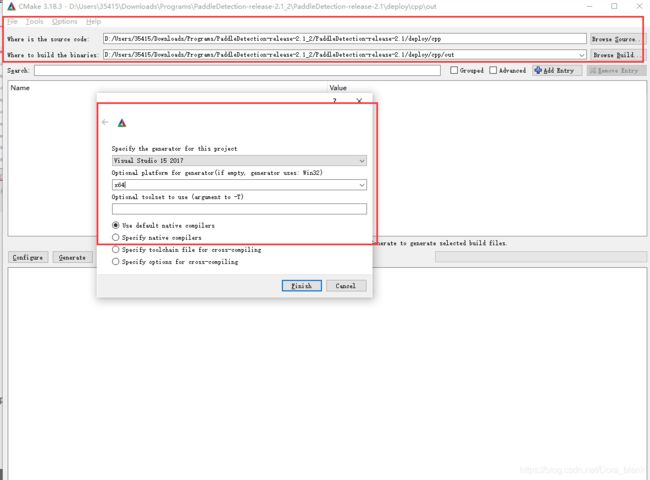
2.此时会遇到这个报错,我们需要添加几条必要的路径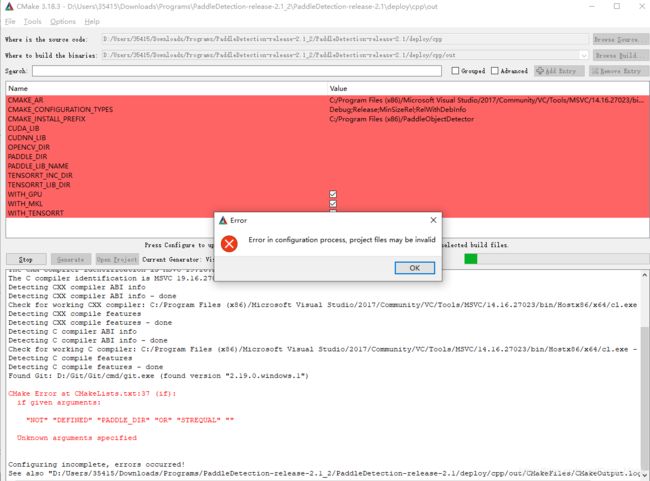

3.点击Configure+Generate

4.点击Open Project,同时我们在out文件夹下发现了生成了解决方案
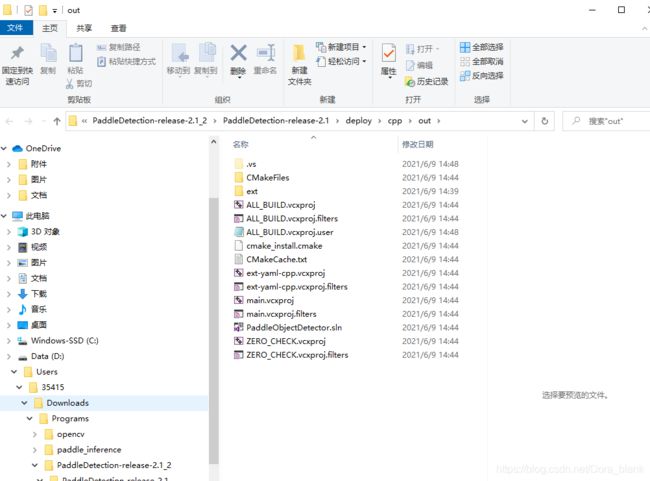
5.将模式调整成release,并把main设置为启动项
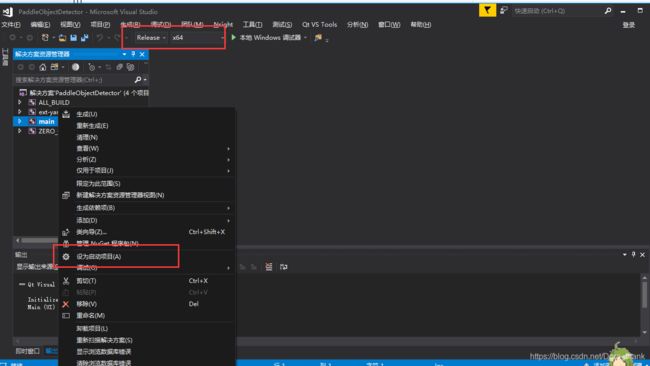
6.进入main属性页将第一行.lib替换成 paddle_inference.lib
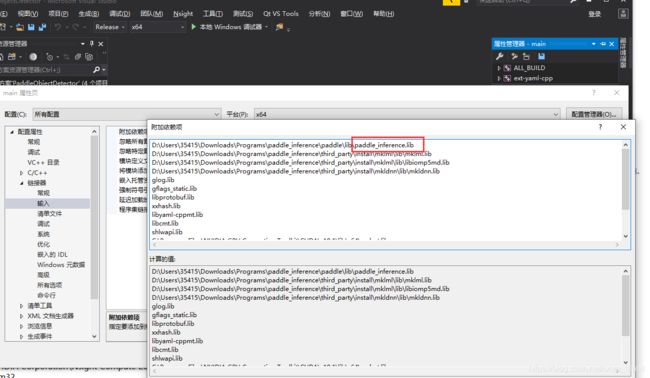
7.右键main重新生成

4 、解决vs生成报错
4.1 错误:C1083 无法打开包括文件:“dirent.h”:No such file or directory
1.任意位置新建include文件夹和dirent.h文件并复制其路径
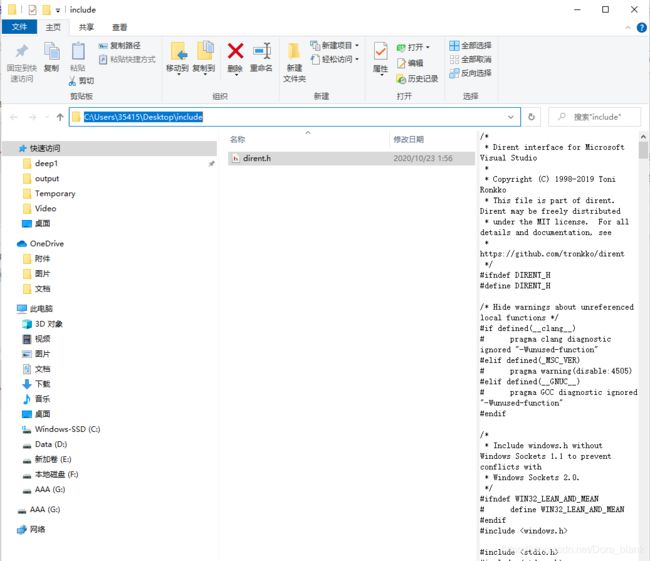
dirent.h:
/*
* Dirent interface for Microsoft Visual Studio
*
* Copyright (C) 1998-2019 Toni Ronkko
* This file is part of dirent. Dirent may be freely distributed
* under the MIT license. For all details and documentation, see
* https://github.com/tronkko/dirent
*/
#ifndef DIRENT_H
#define DIRENT_H
/* Hide warnings about unreferenced local functions */
#if defined(__clang__)
# pragma clang diagnostic ignored "-Wunused-function"
#elif defined(_MSC_VER)
# pragma warning(disable:4505)
#elif defined(__GNUC__)
# pragma GCC diagnostic ignored "-Wunused-function"
#endif
/*
* Include windows.h without Windows Sockets 1.1 to prevent conflicts with
* Windows Sockets 2.0.
*/
#ifndef WIN32_LEAN_AND_MEAN
# define WIN32_LEAN_AND_MEAN
#endif
#include 4.2 报错C3861“lstat”: 找不到标识符
4.3 报错 MSB3073 命令“setlocal
5、测试
5.1 报错找不到paddle_inference.dll
进入cpp/out/Release文件夹下双击main.exe 报错找不到paddle_inference.dll

解决方法:
将paddle预测库中的paddle_inference.dll文件复制到cpp/out/Release文件夹下


5.2 报错 Load symbol …程序无法正常启动
解决方案:
唉。。不慌,这是咱们没配置TensorRT
1.官网下载对应cuda10.1+cudnn7.6.5 版本的TensorRT,我这里下载的是TensorRT-6.0.1.5
TensorRT下载链接:TensorRT-6.0.1.5.Windows10.x86_64.cuda-10.1.cudnn7.6
提取码:gvj6
2.下载Mnist测试数据集:测试数据集下载地址
提取码:jo8u
配置TensorRT教程请参考如下文章
文章地址:windows环境下配置TensorRT 6
5.3测试图片
1.解决如上两个报错
2.新建文件夹models images

images里面放测试的图片,models里放模型文件
3.输入如下命令进行测试
main --model_dir=models --image_file=images/4.jpg
检测成功后会在当前目录下自动创建一个output文件夹,里面存放的是生成的图片,如果没检测到图片则不会自动创建文件夹生成图片

测试效果:
模型文件的生成参考我前面的文章windows10搭建PaddleDetection2.0环境
在导出预测模型部分中有提到
文章中预测模型下载地址:
链接:ppyolov2_r101vd_dcn_365e_coco.pdparams
提取码:18c7
5.4测试视频
5.4.1 报错OpenCV: FFMPEG: tag 0x00000021/’???’ is not found…create video writer failed!
- 输入如下命令进行测试
main --model_dir=models --video_file=handou.mp4
报错:OpenCV: FFMPEG: tag 0x00000021/’???’…

解决方法:
opencv保存文件时候出现的问题,不支持MP4格式
修改main.cc 文件中182 184行如下 (既然不能保存成MP4格式,那么我们可以尝试把它保存成avi格式)
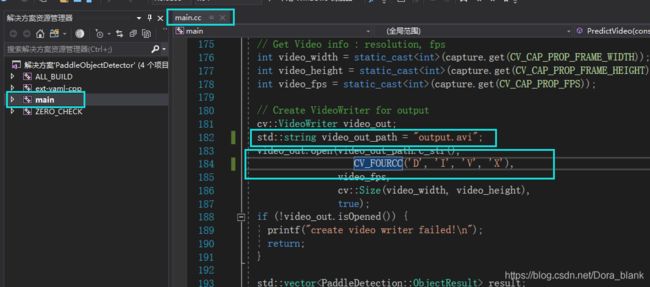
2.重新运行如下代码进行视频测试
main --model_dir=models --video_file=handou.mp4
总结
解决报错真鸡儿累
关于生成dll,利用c++,python进行调用在下一篇文章中讲




